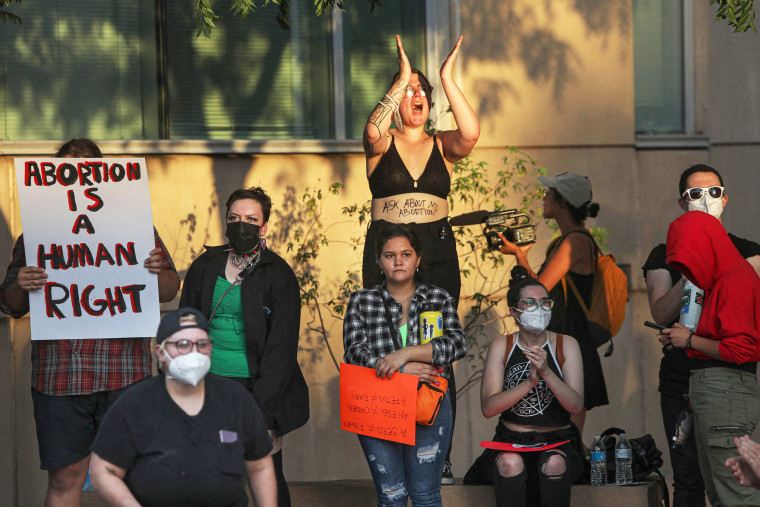A coalition of reproductive and civil rights groups launched an effort Tuesday to advance an amendment that would enshrine abortion rights in the Arizona Constitution, making the swing state the latest battleground in the post-Roe era.
The coalition — led by the American Civil Liberties Union of Arizona, Planned Parenthood Advocates of Arizona, NARAL Arizona and several other women’s health advocacy groups based in the state — will take the form of a political action committee called Arizona for Abortion Access.
The groups seek to place a constitutional amendment on the November 2024 ballot.
“Since the fall of Roe, we have seen our communities come together as a multigenerational and multiracial movement for reproductive freedom to fight for Arizonans’ fundamental rights, and this ballot initiative will continue to build on this momentum,” Arizona for Abortion Access chair Candace Lew said in a statement. “Thousands of Arizonans will power this grassroots effort to not only pose this question to voters, but ensure it passes next November.”
The announced effort makes Arizona the latest state where abortion-rights groups have sought to protect reproductive rights through state constitutional amendments in the 14 months since the U.S. Supreme Court overturned Roe v. Wade.
Last year, abortion-rights advocates enjoyed a clean sweep of victories in the six states where the issue was on the ballot — including conservative states like Kentucky and Kansas.
Reproductive rights groups in Ohio have succeeded in placing a proposed constitutional amendment on the ballot for this November that would include abortion rights in the state constitution. Efforts similar to the one in Arizona are also underway in Florida and Missouri, while activists have discussed pursuing 2024 initiatives in states like Montana, Nebraska, North Dakota and South Dakota, where robust restrictions are already in place.
The focus on state constitutions has emerged in the year since the Supreme Court overturned Roe v. Wade, as advocates in red and purple states, citing public polling consistently showing support for abortion rights, attempt to circumvent conservative legislatures.
Advocates say the citizen-led ballot initiative process — like the one being used in Arizona — is a crucial vehicle that offers the ability to reconcile the gap between supportive voter attitudes about abortion and restrictions advanced by GOP-controlled state legislatures.
Under current law, most abortion care is legal in Arizona until the 15th week of pregnancy. There are exceptions after that mark to save the life of the woman and for serious medical emergencies.
Language the coalition filed Tuesday with the Arizona secretary of state calls for allowing abortions until about the 22nd week of pregnancy. The proposed amendment would “establish a fundamental right to abortion that the state may not deny, restrict or interfere with” before a physician deems that a fetus is viable — or at about 22 weeks of pregnancy. The language includes exceptions after that point for “the life and health” of the woman.
Anti-abortion-rights groups blasted the effort.
In a statement, Maria Birnbaum, the Arizona director for Susan B. Anthony Pro-Life America, called the effort an “extreme and barbaric vision for Arizona” that aligns with a “radical agenda” held by pro-abortion-rights groups “to eliminate parental rights and eliminate any protection for the unborn.”
Announcing plans to get the measure placed on the ballot, however, is only the first step in a long process.
State officials now have 30 days to review the language. If it is approved, the coalition would then have until July 3 to collect about 384,000 valid signatures from registered Arizona voters.

